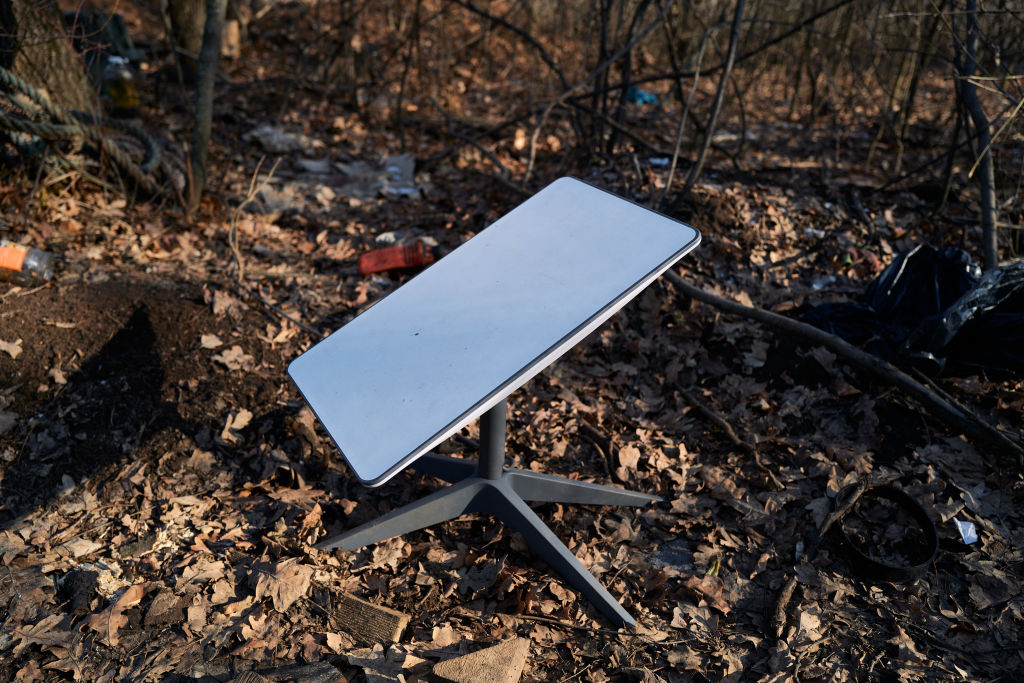The Nigerian Army’s recent raids on Boko Haram turned up satellite uplink technology indicating that the terrorist group is using the Starlink system to communicate with the wider world from its hideout in the Sambisa Forest.
Troops confiscated the technology in July, along with mobile phones and weapons during the Operation Hadin Kai counterterrorism campaign in Nigeria’s northeastern Adamawa and Borno states. Starlink’s system of satellite uplinks and wi-fi routers has become widespread among terror groups operating across the vast spaces of the Sahel, where other communication infrastructure is rare. Since 2023, videos and images posted to social media have shown armed groups using Starlink.
“Technological innovation has always faced early exploitation by criminal interests or violent actors, and Starlink is no exception,” researchers with the Global Initiative Against Transnational Organized Crime (GI-TOC) wrote in a recent analysis.
Starlink is active in 20 of 54 African countries. The system went live in Nigeria in 2023 and, most recently, in Niger in March of this year. As part of approving Starlink, Niger required that all devices be registered with the government. Chad also required Starlink kits to be registered and Mali may follow suit.
Starlink provides users with nearly total coverage of the African continent compared to just over a third of coverage for land-based internet technology. Starlink’s network of thousands of satellites allow terrorist groups from the Sahel to Lake Chad to distribute propaganda and coordinate their actions. The technology’s secure communications complicate governments’ ability to intercept terrorist communication.
In June 2024, a video released by al Qaida-affiliated Jama’at Nusrat al-Islam wal-Muslimin (JNIM) during an operation in the Gao region of eastern Mali against the Islamic State in West Africa showed the group used Starlink. The technology also turned up during a raid on terrorist sites in the Tillaberi and Tahoua regions of Niger.
Extremist violence in Niger nearly doubled in the year after the Army overthrew then-President Mohamed Bazouma in 2023. GI-TOC researchers say illicit Starlink systems smuggled from Nigeria likely played a role in the rapid expansion of extremism in the country.
The small size and portability of Starlink systems have helped make them an important tool for terrorist groups operating outside urban areas. As one trafficker in Maradi in southern Niger told GI-TOC researchers: “It’s easy to move the kits. You just pay the drivers and the police a little money and they let you pass without any problems. Everyone knows how it works.”
Smugglers move Starlink kits across Niger from border communities to terrorist organizations in the Liptako-Gourma region where Burkina Faso, Mali and Niger meet. Other smuggled devices into Niger from Libya have turned up in Tinzaouaten, a hub for extremist activity in norther Mali.
While Starlink systems are now legal in Niger, border officials continue to confiscate them. Terrorist groups sometimes break the Starlink kits down into their components and smuggle them amid other items to avoid detection by authorities.
Beyond their own use of Starlink, criminal groups take advantage of civilians who want to use the systems by charging users up to $140 a month. That’s double the cost for aboveboard Starlink service in Niger. Many of the people being exploited by criminals and terror groups have no bank accounts that they could use to pay for their own Starlink service.
“Traffickers, therefore, exploit Niger’s low banking penetration to retain a sustained flow of illicit income,” GI-TOC researchers wrote.

